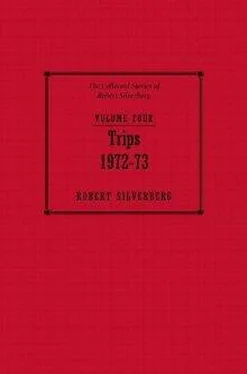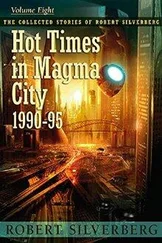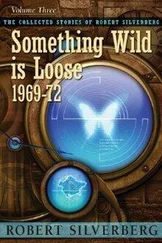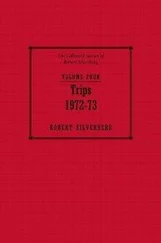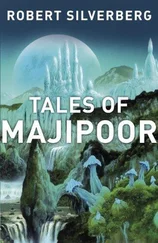Robert Silverberg - Born with the Dead
Здесь есть возможность читать онлайн «Robert Silverberg - Born with the Dead» весь текст электронной книги совершенно бесплатно (целиком полную версию без сокращений). В некоторых случаях можно слушать аудио, скачать через торрент в формате fb2 и присутствует краткое содержание. Год выпуска: 2009, ISBN: 2009, Издательство: Subterranean Press, Жанр: Фантастика и фэнтези, на английском языке. Описание произведения, (предисловие) а так же отзывы посетителей доступны на портале библиотеки ЛибКат.
- Название:Born with the Dead
- Автор:
- Издательство:Subterranean Press
- Жанр:
- Год:2009
- ISBN:978-1-59606-212-2
- Рейтинг книги:5 / 5. Голосов: 1
-
Избранное:Добавить в избранное
- Отзывы:
-
Ваша оценка:
- 100
- 1
- 2
- 3
- 4
- 5
Born with the Dead: краткое содержание, описание и аннотация
Предлагаем к чтению аннотацию, описание, краткое содержание или предисловие (зависит от того, что написал сам автор книги «Born with the Dead»). Если вы не нашли необходимую информацию о книге — напишите в комментариях, мы постараемся отыскать её.
Born with the Dead — читать онлайн бесплатно полную книгу (весь текст) целиком
Ниже представлен текст книги, разбитый по страницам. Система сохранения места последней прочитанной страницы, позволяет с удобством читать онлайн бесплатно книгу «Born with the Dead», без необходимости каждый раз заново искать на чём Вы остановились. Поставьте закладку, и сможете в любой момент перейти на страницу, на которой закончили чтение.
Интервал:
Закладка:
“And where’s mama moa?” Sybille asks. “Should she have abandoned the egg?”
“Moas aren’t very bright,” Gracchus answers. “That’s one good reason why they became extinct. She must have wandered off to find some dinner. And—”
“Good God,” Zacharias blurts.
The moa has returned, emerging suddenly from a thicket. She stands like a feathered mountain above them, limned by the deep-blue of twilight: an ostrich, more or less, but a magnified ostrich, an ultimate ostrich, a bird a dozen feet high, with a heavy rounded body and a great thick hose of a neck and taloned legs sturdy as saplings. Surely this is Sinbad’s rukh, that can fly off with elephants in its grasp! The bird peers at them, sadly contemplating the band of small beings clustered about her egg; she arches her neck as though readying for an attack, and Zacharias reaches for one of the rifles, but Gracchus checks his hand, for the moa is merely rearing back to protest. It utters a deep mournful mooing sound and does not move. “Just back slowly away,” Gracchus tells them. “It won’t attack. But keep away from the feet; one kick can kill you.”
“I was going to apply for a license on a moa,” Mortimer says.
“Killing them’s a bore,” Gracchus tells him. “They just stand there and let you shoot. You’re better off with what you signed up for.”
What Mortimer has signed up for is an aurochs, the vanished wild ox of the European forests, known to Caesar, known to Pliny, hunted by the hero Siegfried, altogether exterminated by the year 1627. The plains of East Africa are not a comfortable environment for the aurochs and the herd that has been conjured by the genetic necromancers keeps to itself in the wooded highlands, several days’ journey from the haunts of quaggas and ground sloths. In this dark grove the hunters come upon troops of chattering baboons and solitary big-eared elephants and, in a place of broken sunlight and shadow, a splendid antelope, a bull bongo with a fine curving pair of horns. Gracchus leads them onward, deeper in. He seems tense: there is peril here. The porters slip through the forest like black wraiths, spreading out in arching crab-claw patterns, communicating with one another and with Gracchus by whistling. Everyone keeps weapons ready in here. Sybille half expects to see leopards draped on overhanging branches, cobras slithering through the undergrowth. But she feels no fear.
They approach a clearing.
“Aurochs,” Gracchus says.
A dozen of them are cropping the shrubbery: big short-haired long-horned cattle, muscular and alert. Picking up the scent of the intruders, they lift their heavy heads, sniff, glare. Gracchus and Ngiri confer with eyebrows. Nodding, Gracchus mutters to Mortimer, “Too many of them. Wait for them to thin off.” Mortimer smiles. He looks a little nervous. The aurochs has a reputation for attacking without warning. Four, five, six of the beasts slip away, and the others withdraw to the edge of the clearing, as if to plan strategy; but one big bull, sour-eyed and grim, stands his ground, glowering. Gracchus rolls on the balls of his feet. His burly body seems, to Sybille, a study in mobility, in preparedness.
“Now,” he says.
In the same moment the bull aurochs charges, moving with extraordinary swiftness, head lowered, horns extended like spears. Mortimer fires. The bullet strikes with a loud whonking sound, crashing into the shoulder of the aurochs, a perfect shot, but the animal does not fall, and Mortimer shoots again, less gracefully ripping into the belly, and then Gracchus and Ngiri are firing also, not at Mortimer’s aurochs but over the heads of the others, to drive them away, and the risky tactic works, for the other animals go stampeding off into the woods. The one Mortimer has shot continues toward him, staggering now, losing momentum, and falls practically at his feet, rolling over, knifing the forest floor with its hooves.
“Kufa,” Ngiri says. “Piga nyati m’uzuri, bwana.”
Mortimer grins. “Piga,” he says.
Gracchus salutes him. “More exciting than moa,” he says.
“And these are mine,” says Nerita three hours later, indicating a tree at the outer rim of the forest. Several hundred large pigeons nest in its boughs, so many of them that the tree seems to be sprouting birds rather than leaves. The females are plain—light-brown above, gray below—but the males are flamboyant, with rich, glossy blue plumage on their wings and backs, breasts of a wine-red chestnut color, iridescent spots of bronze and green on their necks, and weird, vivid eyes of a bright, fiery orange. Gracchus says, “Right. You’ve found your passenger pigeons.”
“Where’s the thrill in shooting pigeons out of a tree?” Mortimer asks.
Nerita gives him a withering look. “Where’s the thrill in gunning down a charging bull?” She signals to Ngiri, who fires a shot into the air. The startled pigeons burst from their perches and fly in low circles. In the old days, a century and a half ago in the forests of North America, no one troubled to shoot passenger pigeons on the wing: the pigeons were food, not sport, and it was simpler to blast them as they sat, for that way a single hunter might kill thousands of birds in one day. Thus it took only fifty years to reduce the passenger pigeon population from uncountable sky-blackening billions to zero. Nerita is more sporting. This is a test of her skill, after all. She aims her shotgun, shoots, pumps, shoots, pumps. Stunned birds drop to the ground. She and her gun are a single entity, sharing one purpose. In moments it is all over. The porters retrieve the fallen birds and snap their necks. Nerita has the dozen pigeons her license allows: a pair to mount, the rest for tonight’s dinner. The survivors have returned to their tree and stare placidly, unreproachfully, at the hunters.
“They breed so damned fast,” Gracchus mutters. “If we aren’t careful, they’ll be getting out of the preserve and taking over all of Africa.”
Sybille laughs. “Don’t worry. We’ll cope. We wiped them out once and we can do it again, if we have to.”
Sybille’s prey is a dodo. In Dar, when they were applying for their licenses, the others mocked her choice: a fat flightless bird, unable to run or fight, so feeble of wit that it fears nothing. She ignored them. She wants a dodo because to her it is the essence of extinction, the prototype of all that is dead and vanished. That there is no sport in shooting foolish dodos means little to Sybille. Hunting itself is meaningless for her.
Through this vast park she wanders as in a dream. She sees ground sloths, great auks, quaggas, moas, heath hens, Javan rhinos, giant armadillos, and many other rarities. The place is an abode of ghosts. The ingenuities of the genetic craftsmen are limitless; someday, perhaps, the preserve will offer trilobites, tyrannosaurs, mastodons, saber-toothed cats, baluchitheria, even—why not?—packs of Australopithecines, tribes of Neanderthals. For the amusement of the deads, whose games tend to be somber. Sybille wonders whether it can really be considered killing, this slaughter of laboratory-spawned novelties. Are these animals real or artificial? Living things, or cleverly animated constructs? Real, she decides. Living. They eat, they metabolize, they reproduce. They must seem real to themselves, and so they are real, realer, maybe, than dead human beings who walk again in their own cast-off bodies.
“Shotgun,” Sybille says to the closest porter.
There is the bird, ugly, ridiculous, waddling laboriously through the tall grass. Sybille accepts a weapon and sights along its barrel. “Wait,” Nerita says. “I’d like to get a picture of this.” She moves slantwise around the group, taking exaggerated care not to frighten the dodo, but the dodo does not seem to be aware of any of them. Like an emissary from the realm of darkness, carrying good news of death to those creatures not yet extinct, it plods diligently across their path. “Fine,” Nerita says. “Anthony, point at the dodo, will you, as if you’ve just noticed it? Kent, I’d like you to look down at your gun, study its bolt or something. Fine. And Sybille, just hold that pose—aiming—yes—”
Читать дальшеИнтервал:
Закладка:
Похожие книги на «Born with the Dead»
Представляем Вашему вниманию похожие книги на «Born with the Dead» списком для выбора. Мы отобрали схожую по названию и смыслу литературу в надежде предоставить читателям больше вариантов отыскать новые, интересные, ещё непрочитанные произведения.
Обсуждение, отзывы о книге «Born with the Dead» и просто собственные мнения читателей. Оставьте ваши комментарии, напишите, что Вы думаете о произведении, его смысле или главных героях. Укажите что конкретно понравилось, а что нет, и почему Вы так считаете.
